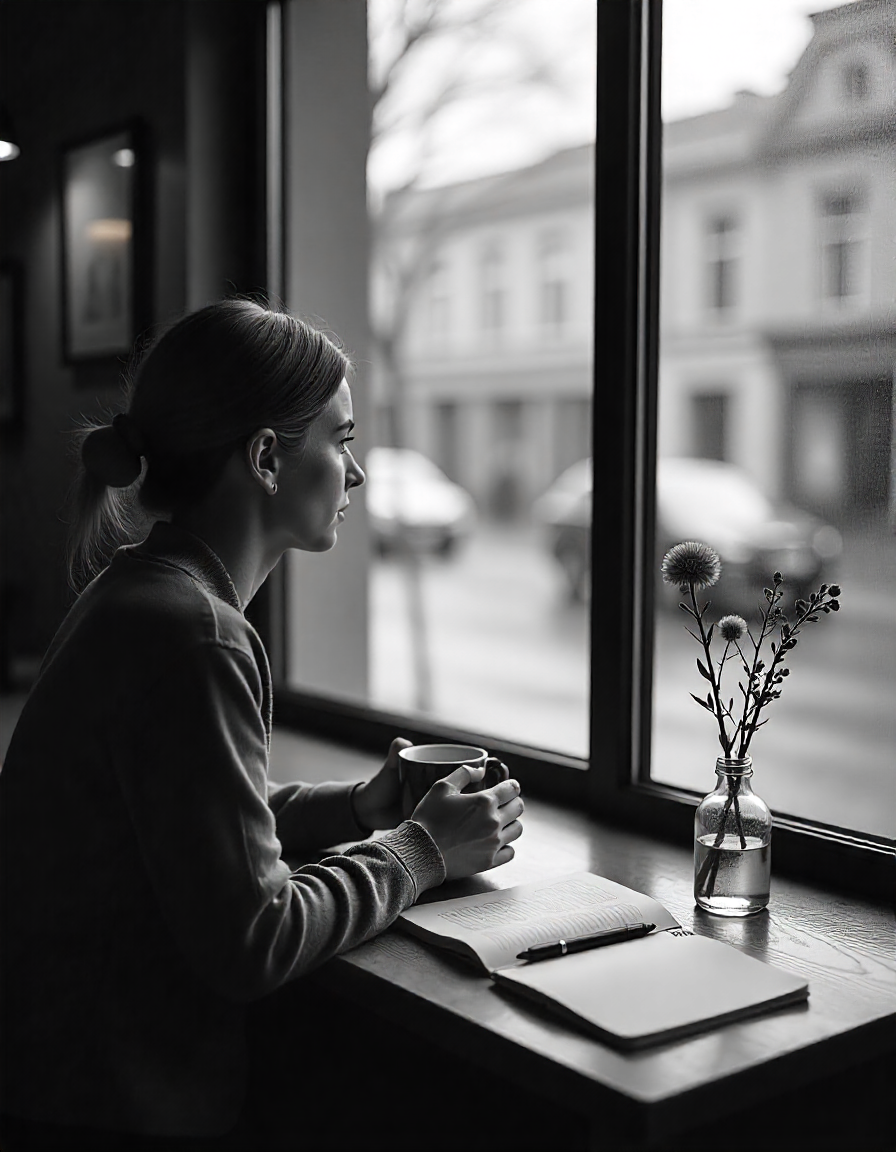We often treat attention like an endless resource, scattering it across news feeds, emails, conversations, and half-watched videos. Yet, our ability to notice—to truly take in what’s around us—is one of the most underrated skills we can cultivate.
The modern world rewards speed. We skim, scroll, and swipe through information at a pace that would have seemed absurd a few decades ago. But in this rush, we lose something subtle but powerful: depth.
The Cost of Constant Distraction
You’ve probably had the experience of reaching for your phone to check the time, only to put it down and realize you never actually looked at the clock. This tiny lapse isn’t about forgetfulness—it’s about divided attention.
When our focus is split between too many things, we start operating on autopilot. We may finish tasks, respond to messages, and keep up with our routines, but we miss the details that make life richer.
And it’s in those details—someone’s choice of words, the changing light on an afternoon street, the unspoken hesitation in a conversation—where meaning often hides.
Noticing is Not the Same as Seeing
Seeing is passive. It happens whether we want it to or not. Noticing is active. It requires intention.
A street musician is background noise until you stop to really listen to the melody. A colleague’s comment is just office chatter until you notice the tension behind their smile. A sunset is just a splash of color until you pause to realize the way it makes you feel.
Noticing transforms ordinary moments into something worth remembering. It sharpens perception, deepens relationships, and helps us spot opportunities we might otherwise miss.
How to Practice the Art of Attention
Contrary to popular belief, improving focus isn’t about sheer willpower. It’s about building habits that make it easier to notice without forcing yourself into constant vigilance.
-
Slow Down Your Inputs
Instead of jumping between tasks, finish one thing fully before starting another. Single-tasking might feel inefficient at first, but it gives your mind room to absorb details. -
Use Your Senses Deliberately
Pick a moment in the day to engage one sense at a time. Notice the taste of your morning coffee without distractions. Feel the texture of a pen in your hand while writing. Listen to the ambient sounds around you before putting on music. -
Keep a “Noticing Journal”
Each day, jot down three small things you observed that you might have otherwise overlooked. Over time, you’ll naturally become more aware. -
Ask Better Questions
When talking to someone, go beyond surface-level inquiries. Instead of “How was your day?” try “What was the most unexpected thing that happened today?” This invites detail—and detail is where noticing thrives.
The Link Between Noticing and Creativity
Many people assume creativity is about producing something entirely new. In reality, it’s often about combining existing elements in a way others haven’t considered.
That ability depends on noticing. Writers pick up on rhythms in conversation. Designers catch patterns in nature. Entrepreneurs see gaps in the market that others overlook.
The more you notice, the more raw material your mind has to work with. Your brain becomes a vast library of textures, colors, interactions, and stories—resources you can draw from when solving problems or creating something new.
When Noticing Becomes a Form of Care
Attention is one of the rarest and most valuable gifts you can give. Noticing someone—really seeing them—makes them feel valued in a way words alone can’t.
Think of the friend who remembers your favorite drink without asking, the teacher who sees your potential before you believe in it, or the stranger who holds the door because they noticed you were carrying something heavy.
Small acts like these often have a bigger impact than grand gestures, because they stem from genuine awareness.
Guarding Your Capacity to Notice
Noticing takes mental space, and mental space is a finite resource. If your mind is overloaded with notifications, deadlines, and endless background noise, your ability to notice will shrink.
Guard it like you would any important asset.
-
Limit digital noise. Turn off non-essential notifications.
-
Make space for stillness. Even five quiet minutes a day can restore mental clarity.
-
Declutter your surroundings. A calm environment makes it easier to pay attention to the right things.
Noticing as a Path to Contentment
We often think happiness comes from big events—vacations, promotions, major purchases. But research suggests lasting contentment is more tied to small, repeated moments of pleasure and meaning.
Noticing is the doorway to those moments. It’s how you catch the way sunlight hits your desk in the morning, the laughter drifting in from another room, the smell of rain before a storm.
When you start noticing more, you start needing less to feel satisfied.
The Challenge
Here’s a simple experiment: tomorrow, choose one hour where your goal is to notice as much as possible. No music, no phone, no multitasking—just pay attention to your surroundings, your thoughts, and the people you interact with.
You might be surprised at how much you’ve been overlooking. And once you start, it’s hard to go back.
Closing Thought
The world won’t slow down for you, but you can choose to slow down for it. Noticing is an act of quiet rebellion against the speed and noise of modern life. It’s a reminder that meaning doesn’t just come from doing more—it comes from seeing more.
And the best part? You don’t need an app, a planner, or a productivity hack to begin. All you need is to look, to listen, and to let the small things matter again.




